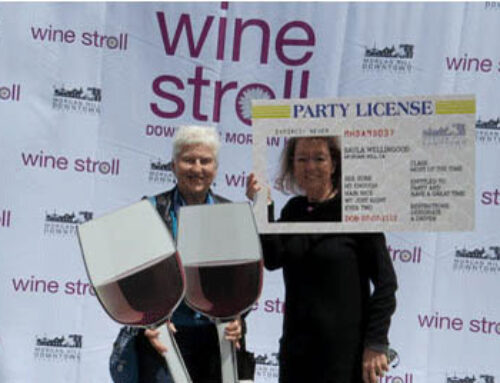Published in the Oct. 14-27, 2015 issue of Morgan Hill Life

Morgan Hill residents might wonder at first why our county leaders oppose an oil train facility in another California county nearly 200 miles away. The reason for the resolution is that the Nipomo-based facility will result in five trains of 80 cars — stretching nearly a mile long — passing every week through 40 miles of Union Pacific Railroad tracks in Santa Clara County. Each railroad tank car will be rolling from the fracking operation in the Bakken formation in North Dakota and Canada.
Each of these freight trains will be carrying two million gallons of toxic and highly combustible crude oil through Milpitas and downtown San Jose and along Monterey Road through the centers of Morgan Hill, San Martin and Gilroy.
The supervisors of Monterey and Alameda counties, which the trains would also travel through, have passed similar resolutions because of the unacceptable health threats and public safety risk of the heavy, high-sulfur crude. The Phillips 66 Santa Maria Refiner proposed rail spur project sets a dangerous precedent for other oil companies to follow, and so all three counties want to eliminate this threat before it is established. Union Pacific by law would be responsible for delivering the trains to the refinery, using its Santa Clara County tracks to do so.
The oil train industry currently uses older-model tank cars with thinner walls that can be punctured more easily than newer and more expensive models. Because of the increase in fracking and the lack of pipeline infrastructure, such as the proposed Keystone XL pipeline, the United States has seen a 400 percent rise in rail shipments of crude in the past decade. This increase has resulted in a dramatic increase of accidents.
The U.S. Department of Transportation Pipeline and Hazardous Materials Safety Administration has recorded 1.15 million gallons of oil spilled in train accidents in the U.S. since 2013. This is more than all the crude spilled by rail transport in the combined previous 38 years.
A major oil spill can have serious threats to the environment of our county and communities, as the sulfur dioxide in crude oil causes long-term damage to local aquifers and farm lands.
Lives are also at stake. Early one morning in July 2013, a 74-car freight train carrying crude oil derailed in Lac-Méganti , Quebec, a community of 5,932 people.
The explosions from the volatile crude destroyed the downtown, killing 42 people with another five confirmed missing and presumed dead. Train accidents involving crude-oil tankers have surged in the past three years. Since February, there have been at least six significant crude-train accidents.
Morgan Hill Life encourages our community residents to be aware of the dangers of having mile-long trains filled with crude oil passing through our downtown and close to our schools, churches and neighborhoods. We do not want to see our downtown destroyed by an incident similar to the one in Lac-Méganti.
There are also longterm health risks with having so many trains passing through Santa Clara County.
Toxic emissions into the air from the mainline rail operations would be significant and unavoidable for areas in close proximity to populated areas and where there is a speed limit restriction on trains of less than 30 miles per hour, according to a Revised Draft Environmental Impact Report (DEIR) on the project that was released last October. And in those locations the 30-year cancer risk would exceed air quality thresholds.
The quality of life of our residents is threatened by the passage of these crude-carrying trains through our community.
We encourage the leaders of the South Valley serving in the Morgan Hill City Council, the San Martin Neighborhood Alliance, and the Gilroy City Council to join more than 40 public agencies and elected officials in California and send the San Luis Obispo Board of Supervisors the message to reject the refinery rail spur proposal.
Until Phillips 66 can guarantee the health and safety of the public by using modern tank cars and implementing other safety measures, our local leaders need to stand alongside Supervisor Wasserman and other county officials and oppose millions of gallons of crude oil passing through our county and posing an unacceptable risk to our residents.






